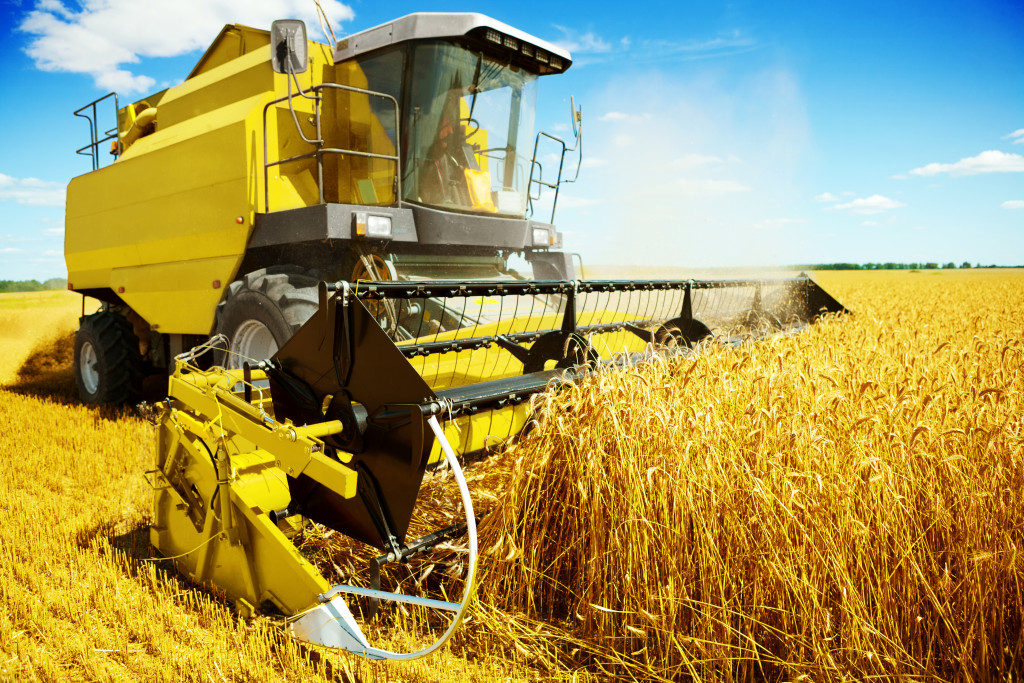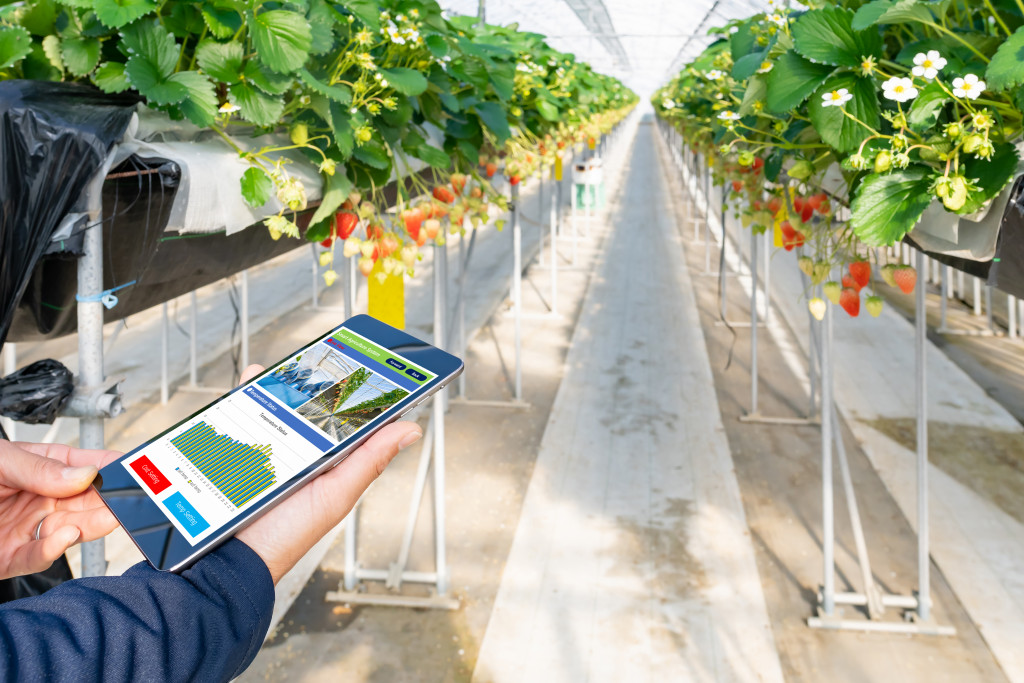- Technology is revolutionizing farming practices, enhancing productivity and efficiency through specialized equipment.
- Precision agriculture uses data to optimize crop yields, reduce waste, and streamline farming operations.
- Climate-smart agriculture, including smart irrigation and improved seed varieties, mitigates the impacts of climate change.
- Embracing technological innovation in agriculture promotes sustainability, feeding a growing population while protecting the environment.
Agriculture has always been one of the most critical industries in the world. With a growing population, it is crucial to make sure that people have a sustainable way to feed everyone while also protecting the environment. That’s why technology is playing an increasingly important role in agriculture today. Here’s a closer look at how technology is transforming farming practices and how you can benefit from it.
Specialized Farm Equipment
Farmers are now using more specialized equipment to increase productivity and efficiency. These machines use advanced sensors and algorithms to optimize their performance for different crops, soil conditions, and other variables. As a result, they provide farmers with better yields while reducing the amount of time spent on maintenance. Here are some examples that you can get from reliable farm equipment dealers:
Drones
Drones have been around for a while, but their applications in agriculture are just beginning to take off. Drones equipped with cameras and sensors can be used to survey large fields, monitor crop health, and even spray crops. This technology can help farmers save time and money while also minimizing the risks associated with traditional crop spraying methods.
Automated Tractors
Automated tractors are revolutionizing farming practices by providing a cost-effective and efficient approach to crop cultivation. Equipped with GPS technology, these autonomous vehicles can perform tasks such as plowing, sowing, and fertilizing with greater precision than conventional manual tractors. They operate around the clock, eliminating the constraints of human labor hours, and can function in various weather conditions, further enhancing a farm’s productivity.
Combine Harvesters
In the realm of harvesting, combine harvesters have emerged as a quintessential tool. They amalgamate three separate operations — reaping, threshing, and winnowing — into a single process, minimizing labor requirements and time expenditure.
Recent technological advancements have led to the development of smart combine harvesters that utilize sensor technology to analyze crop density and moisture content, optimizing harvesting accordingly. These machines, available from reliable farm equipment dealers, are a testament to the transformative impact of technology on agriculture.

Precision Agriculture
Precision agriculture is all about optimizing crop yields while reducing waste. It is a data-driven farming approach that involves using digital tools to collect information about the soil, water, and air quality on the farm.
This data is then analyzed using specialized software to help farmers make informed decisions about how to manage their land. Precision agriculture can help reduce the amount of fertilizer and pesticides needed, resulting in a more sustainable and cost-effective farming operation.
In some areas, satellite imagery is also being used to track changes in crop health and soil fertility. This allows for highly targeted interventions that can improve both farm efficiency and yield.

Climate-smart Agriculture
Climate change is a natural and pressing concern for agriculture, but technology can help farmers adapt to changing environmental conditions. Climate-smart agriculture involves a range of practices and technologies that help farmers mitigate and adapt to climate change. Here are some innovations in this field:
Smart Irrigation
Water is one of the most precious resources in agriculture, and smart irrigation is an excellent way to conserve it. This technology uses sensors to collect data on soil moisture levels, weather, and other environmental factors to optimize irrigation. Smart irrigation can also alert farmers to potential issues, such as leaks or broken pipes, and help them manage their water usage efficiently.
Farm Management Software
Running a farm is a complex business, and farm management software can help streamline operations and keep track of everything from finances to yield data. This software can help farmers plan their operations, monitor their progress, and make informed decisions about future investments. Investing in farm management software can help you optimize your operations, minimize waste, and maximize your profits.
Improved Seed Varieties
Genetic engineering has opened up a world of possibilities for developing improved seed varieties that are better adapted to changing climates. Crops such as drought-tolerant corn, super-rice, and orange sweet potato are just some examples of genetically modified crops that can benefit farmers in the long run.
Agriculture is an industry ripe for innovation, and technology is transforming the way people farm. From precision agriculture to drones, smart irrigation, and climate-smart agriculture, there are many ways that technology is improving farming practices. Whether you are a large-scale farming entrepreneur or run a small eco-conscious operation, there are technologies out there that can help you optimize your yield, reduce waste, and promote sustainability. By embracing innovation in agriculture, we can ensure that we have a sustainable way to feed our growing population while also protecting the environment for generations to come.